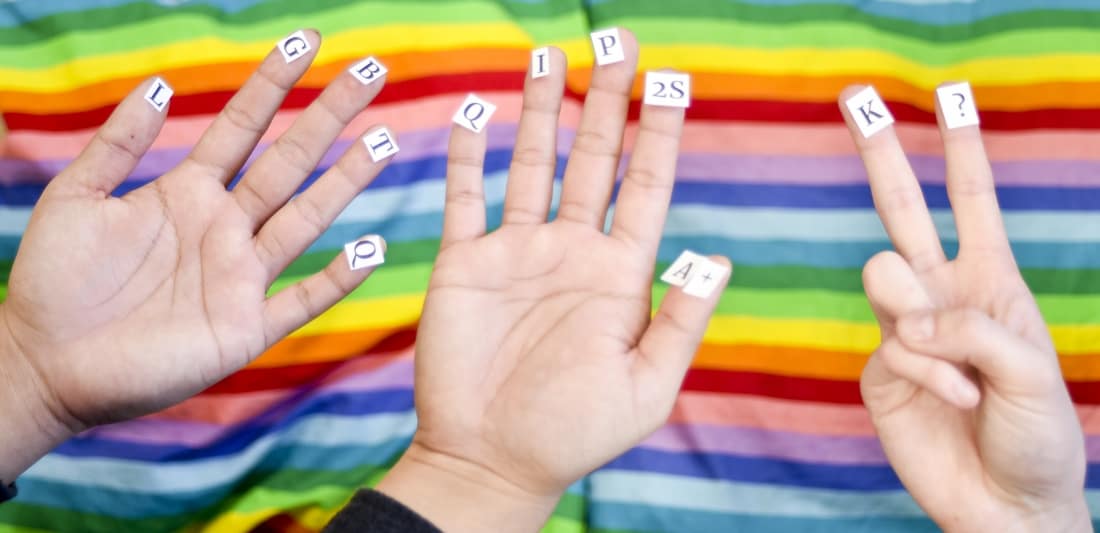The queer community today includes a huge range of identities under the umbrella of gender and sexual diversity — but what counts as diverse? And, why does it matter?
The letter K has recently been introduced as an addition to the acronym that generally goes something like this: LGBTQQIP2SA+ — meaning lesbian, gay, bisexual, transgender, queer, questioning, intersex, pansexual, two-spirit, asexual, and other gender and sexual minorities.

Size need not matter when considering additions to the queer acronym.
The proposed K stands for “kink.” Some opponents to adding the K argue that the acronym is getting too long and that we should do away with it altogether. But, the acronym is important, and inclusivity is important in the queer community, which spent too long as an exclusive club for strictly gay individuals.
People are coming up with new words to define communities where they didn’t feel they fit in before, and that’s great. I am not pansexual, but I’m glad a word now exists that helps people find each other and feel included. However, that does not mean everyone gets a letter here. Misuse of the acronym erases people who need inclusion.
For example, the A has often been misinterpreted as standing for “allies,” when it actually stands for asexual — a group of people often forgotten about in the queer community. We love our allies, but they are not queer. We can also love dominatrixes and masochists, but that still doesn’t make them queer.
Kink isn’t queer. Kink is, well, kink. It’s the sex that some people like to have — and that is not what queerness is. I am not queer because of the sex I have. I am queer, because the relationships that are emotionally fulfilling to me often lie outside what is considered normal by society.
Kink offers sexual fulfillment — which can lead to emotional fulfillment — but it’s still defined by the act of sex, not the relationship. Someone who likes to participate in kinky activities might be having sex outside of the norm, but it does not encompass every aspect of their lives the way queerness does to a queer person.
Does a straight, cisgendered person who identifies with kink have to pretend their partner is their roommate when they go apartment hunting? Do they have to carefully change the pronouns of their partner when asked about their personal life at a new job or avoid travel because they no longer match the picture and name on their ID?
Have they had their identity erased, because it’s allegedly grammatically incorrect? The singular they is grammatically correct — ask an English professor. Have they been told to “pick a side already” or been asked what’s in their pants?
Have they been denied access to traditional cultural events, because colonialism was so thorough that many of our Elders now see the world in a gender binary — with the third, fourth and sometimes fifth genders present in pre-colonized North America all but forgotten?
No, someone who likes to bring a cattle prod to bed does not have to deal with any of those things. Unless they are queer, in which case the pertinent issue would be with their queerness and not how they need to have someone inflict pain on them — or whatever their kink is — to get off.
Our acronym is important to us, and it needs to be used properly. It is long, and that’s okay, because every letter represents a group of people who have been excluded from the heteronormative world in some way. Adding new letters makes people feel reassured that, yes, they are queer enough to exist in queer spaces — something that people who are into kink do not necessarily experience.
—
Meg Holt
Photo: David Hartman
Leave a Reply